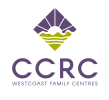
Register for this course and read more on the WCCRC website.
WCCRC Administration & Management for Child Care Knowledge Base
The WCCRC Administration & Management for Child Care Knowledge Base is a comprehensive online information database for ECE leaders with detailed guidance in all areas of child care leadership, including Governance, Human Resources, Enrollment & Attendance, Health & Safety, Facilities & Equipment, Programming & Curriculum, and Community Connections.
Formerly known as the Westcoast INFORM Guide, the WCCRC Knowledge Base has been completely revised to reflect current practices and learnings in inclusiveness, Truth & Reconciliation, the BC Early Learning Framework, and inquiry-based approaches. As a valuable tool for all child care staff, it includes comprehensive lists of online resources, as well as tools and forms you can use in your own practice.
You can find the WCCRC Knowledge Base here.
Course Content





